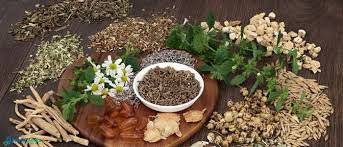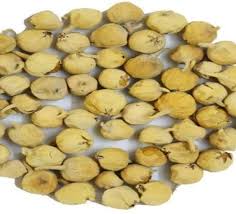Heart health is one of the most crucial aspects of overall wellness, and Ayurveda offers natural remedies to support and improve cardiovascular function. By focusing on diet, lifestyle, herbs, and therapies that balance the body's energies, Ayurveda provides effective solutions for maintaining a healthy heart and preventing heart-related issues. In this article, we will explore how Ayurveda can help promote heart health, prevent heart disease, and improve overall cardiovascular wellness.
Heart health is essential to living a long and fulfilling life. Cardiovascular diseases such as heart attacks, high blood pressure, and strokes are increasingly common in modern society, often due to poor lifestyle choices, stress, and unhealthy eating habits. Ayurveda, the ancient system of medicine from India, offers holistic and natural remedies to support heart health, reduce the risk of heart disease, and promote vitality.
1. Understanding Heart Health in Ayurveda:
Ayurveda views the body as a balance of three doshas—Vata, Pitta, and Kapha—which influence physical and mental health. When these doshas are out of balance, it can lead to various health issues, including heart problems.
- Vata Dosha: When Vata is imbalanced, it may cause circulation issues, irregular heartbeat, and anxiety, which can affect heart health.
- Pitta Dosha: Pitta imbalances can lead to inflammation, high blood pressure, and heart-related concerns like cholesterol buildup.
- Kapha Dosha: Kapha imbalance often results in weight gain, high cholesterol, and a sluggish circulatory system, increasing the risk of heart disease.
Ayurveda seeks to restore balance among the doshas through diet, herbs, and lifestyle practices to promote optimal heart health.
2. Ayurvedic Herbs for Heart Health:
Ayurvedic herbs have been used for centuries to treat and prevent heart conditions, and many of these herbs are backed by modern science for their ability to support cardiovascular function. Some top Ayurvedic herbs for heart health include:
- Arjuna (Terminalia Arjuna): Known as one of the most powerful herbs for heart health, Arjuna helps to strengthen the heart, reduce high blood pressure, and improve circulation. It also supports healthy cholesterol levels and helps prevent heart attacks.
- Ashwagandha: This adaptogenic herb is known for its ability to reduce stress and anxiety, which are often contributors to heart disease. It helps regulate cortisol levels, thereby reducing the strain on the heart.
- Brahmi (Bacopa Monnieri): Brahmi is an excellent herb for mental clarity and stress relief. It is also beneficial for heart health as it supports circulation, reduces inflammation, and helps balance the nervous system.
- Garlic: Garlic has been used in Ayurveda for centuries as a heart tonic. It is known to lower blood pressure, reduce cholesterol, and prevent the formation of plaque in the arteries.
- Turmeric (Curcuma Longa): Turmeric has anti-inflammatory and antioxidant properties, which help reduce the inflammation and oxidative stress that can contribute to heart disease.
3. Ayurvedic Diet for Heart Health:
Ayurveda emphasizes the importance of diet in maintaining heart health. Eating foods that are rich in antioxidants, healthy fats, and fiber while avoiding foods that increase inflammation and contribute to heart disease is key.
- Foods to Include:
- Healthy fats: Avocados, ghee, nuts, and seeds provide heart-healthy fats that support cardiovascular function.
- Whole grains: Brown rice, quinoa, barley, and oats help maintain healthy cholesterol levels and improve digestion.
- Fruits and vegetables: Fresh, seasonal, and locally grown produce like leafy greens, berries, and citrus fruits are rich in antioxidants and help reduce inflammation.
- Herbal teas: Drinking herbal teas made from ingredients like ginger, cinnamon, and tulsi (holy basil) can help support circulation and lower blood pressure.
- Foods to Avoid:
- Processed foods: Avoid excessive consumption of processed foods, trans fats, and foods high in refined sugars, as they contribute to heart disease.
- Excess salt: Too much salt can increase blood pressure and strain the heart.
- Fried foods: These foods are high in unhealthy fats, which can raise cholesterol levels and lead to heart disease.
4. Ayurvedic Lifestyle Practices for Heart Health:
Ayurveda encourages a balanced lifestyle to support heart health. Incorporating daily practices that reduce stress, improve circulation, and enhance overall well-being is essential.
- Yoga and Pranayama: Certain yoga poses like Setu Bandhasana (Bridge Pose), Viparita Karani (Legs-Up-the-Wall Pose), and Ujjayi Pranayama (victorious breath) can help improve circulation, reduce stress, and strengthen the cardiovascular system.
- Abhyanga (Oil Massage): Massaging the body with warm, herb-infused oils can improve circulation, reduce stress, and calm the nervous system, benefiting heart health.
- Mindfulness and Meditation: Regular meditation practices, such as mindfulness or guided imagery, help reduce stress levels, which are key contributors to heart disease.
5. Preventive Measures for Heart Disease:
Prevention is a significant aspect of Ayurveda. By adopting a lifestyle that prioritizes balanced eating, regular exercise, stress management, and herbal support, you can reduce the risk of heart disease and promote long-term heart health.
- Regular Check-ups: Ayurveda stresses the importance of regular health check-ups, including monitoring blood pressure, cholesterol, and blood sugar levels, to detect potential issues early.













